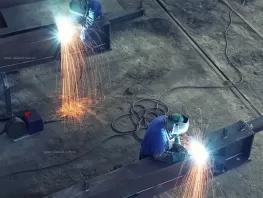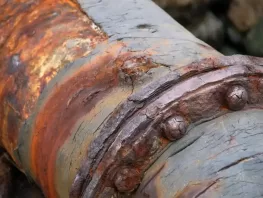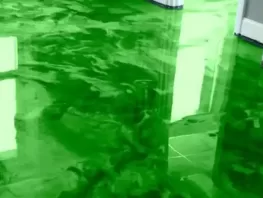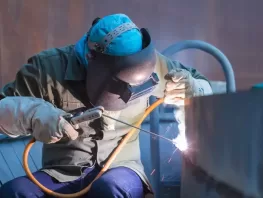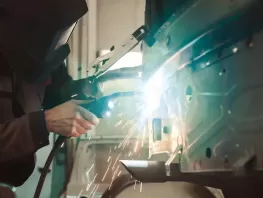Choosing the Right Pressure Washer: Save Money, Save Time
Posted Aug 06, 2013 by Dave Scaturro

Have a job that requires the use of a pressure washer? You know what they say, “the bigger the better,” right? Unfortunately, in this case, that statement does not apply, and adhering to it may leave you digging into your pocket to replace damaged property. When you have a job that requires pressure washing, most people assume taking the biggest and most powerful machine off of the shelf is their best bet. Unfortunately, what some people do not realize is that much more goes into this decision than picking the washer with the most PSI (pounds per square inch). Choosing a machine that is not powerful enough will not get the job done, and choosing a machine that is too powerful can damage whatever it is you’re spraying rather, than restoring it. This article should leave you with a few quick points to remember when selecting a pressure washer for a power washing job.
How different are pressure washers? They can be as different as hot and cold - literally. Cold water pressure washers are great for jobs that require doing away with dirt, dust, loose & peeling paint and light mud, and are for the most part smaller and a cheaper choice economically. Bigger jobs, however, may require just the opposite: a hot water pressure washer. Hot water pressure washers are for when cold water pressure washers just won’t do the trick when dealing with stickier problems, such as oil, grease and heavy surface contaminants involved in industrial cleaning projects.
As with any power tool, you must also choose how you want the unit to run: gas or electric. While electric washers are cheaper to run, easier to maintain and last but not least, much quieter, they do not have the mobility that gas washers do. Hot water pressure washers also require heat sources, which range from oil, gas or electric. Oil heated washers have great mobility, with cheap fuel you can get just about anywhere. Gas heated washers are not as portable, because they are rooted into the gas system of wherever they are located. Electric washers are very mobile, but they need a high current to operate, and this can be restricting depending on the job site.
One of the biggest concerns when choosing a washer is does the unit have enough pressure? Too little pressure coming from the machine will not remove the undesirable substance from the surface, and too much may severely damage the substrate rather than restore it. Volume also plays a very large part. In this case, the bigger the better is true: the bigger the volume of water blasting away the surface contaminant from the face of the substrate, the better. What really gives your pressure washer the ability to produce the right amount of pressure and volume is the horsepower that the motor is producing.
Depending on the power of your machine and the job, your psi (pounds per square inch of pressure) will vary, and greatly. A small job , handled by a cold or hot pressure washer, can be taken care of with a force of about 2,500 PSI or less, coming from the washer. However, when serious, industrial cleaning is needed, washing known as UHP is utilized by companies. UHP, or Ultra High Pressure Washing, can produce or exceed 40,000 PSI. UHP is used, for example, when surfaces that were once permanent need to be removed, such as paint on a concrete or steel surface.
Now hopefully the message is a bit clearer that pressure washers do vary - 2,500 PSI to 40,000 PSI is a big difference, and it all depends on your job. Degreasing a surface and cleaning heavy oils from industrial equipment likely call for hot water pressure washers. Jobs such as aggressive surface preparation to transfor a surface back to a bare substrate or performing exterior maintenance on a building to rid the property of grime likely call for washers in the higher end of the PSI spectrum. With lighter jobs, ranging from cleaning mold, mildew or loose paint, removing peeling paint or tank cleaning, your power washer will still likely fall between 2,500 PSI -4,000 PSI. The question then remains when to use 40,000 PSI. In those cases you better call a professional.
As you can easily see, there are a number of things to consider when choosing a pressure washer for your job, and admittedly it can be a bit much. If you feel like you don’t want to risk putting your money and property in the hands of a pressure washer that may not be right for the job, you can always get a helping hand from your local power washing contractor. Organizations such as Power Washers of North America can assist you in finding the right contractor with their inclusive directory, and it is important to find the right, local company that is equipped for the job with good equipment and experience. Readers on the East Coast may come across Alpine Painting and Sandblasting, a company that has been in the power washing business for over three decades, utilizing various machines with PSI’s ranging from 2,500 to 40,000 PSI and a knowledgeable staff that can use them. Allowing an experienced contractor to take the reigns of such a powerful machine that requires a good amount of understanding is a good idea, however you need to ensure you find one that follows strict protocols and procedures in the name of safety, efficiency and professionalism.
If you would like a quote for your next pressure washing project please call Alpine Painting at (866) 596-0349 or visit our contact us page to get a free estimate.
by Dave Scaturro, Sales Director for Alpine Painting
Credit to: Leiss, Daniel. "How to pick a pressure washer." CoatingsPro. 17 03 2013: 32-35. Print. <http://coatingspromag.epubxp.com/i/114701/32>.
